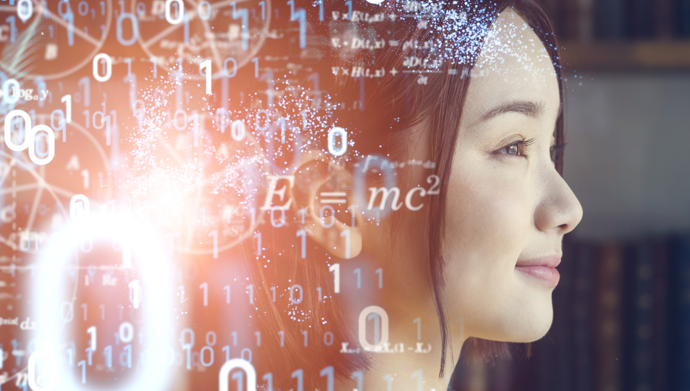Artificial Intelligence is having a major impact on education. Teachers, educators, parents, and school leaders are all having mixed feelings about it and are unable to decide whether they should be excited or concerned about AI. The true challenge, however, is not in deciding whether to accept it or fight it, but in addressing the topic correctly. What this means is ensuring AI is approached thoughtfully and appropriately in the school community, and informing the vision for teaching and learning with AI.
What is an AI and what it is not?
Artificial Intelligence, or AI, is a branch of computer science aimed at creating machines that mimic human intelligence. It's used to perform tasks that usually require human thought, like understanding language, recognizing patterns, or making decisions. Types of AI range from systems doing specific tasks, like recommending movies or autocorrecting typing errors to more advanced forms that can generate new content or predict future outcomes. AI is also behind self-driving cars and digital assistants, like Siri or Alexa. AI allows machines to learn, adapt, and perform tasks like humans, often more quickly and accurately. It's a rapidly evolving technology that's already a part of our everyday lives. The tools that get most attention recently is Generative AI, including ChatGPT and the other new content-creation tools.
While many are positively overwhelmed with the way AI marks its presence in our lives, let’s not forget that AI is not magic. It is not going to answer all our questions, solve all your problems and replace the existing reality. What seems to be the biggest fear now is its role in schooling and education. While many educators are afraid that AI will be somehow misused, we do need to remember that with right approach AI has constructive purposes in education enhancing efficiency and accuracy and can serve educating learners.
AI and education
While a lot of exploration is still needed around AI in education, let’s reflect on AI’s transition based on the following questions:
- How can schools use AI to support student learning?
- How can schools prepare students with the skills to thrive in an AI-infused world?
- How can AI support educators? Is it possible for the AI to free up teachers’ time to allow them to focus on students?
First and foremost, school leaders should encourage educators towards engaging in AI and investigating it. Once educators are familiar and comfortable enough with the technology, they can lead AI explorations appropriately with students, and be a part of the transition rather than just observe it.
In order to make this happen, fostering a culture where teachers feel safe to experiment, make mistakes, learn from them and feel comfortable about not having answers to all the questions immediately is crucial. Supporting educators with providing trainings, offering workshops or professional development courses on AI, encouraging collaboration can help teachers understand its capabilities and limitations and use them adequately.
Educating responsible digital citizens
Together with educating teachers, students should also be trained on the ethical implications of AI, including biases, privacy concerns, and algorithmic fairness. Educating the generation of responsible digital citizens, learning digital citizenship skills, emphasizing responsible and ethical use of AI technologies, and encouraging critical thinking and awareness of the societal impact of AI systems is vital for learners. Learners need to have the understanding that AI can be controlled and taught how to deliver.
In the school context, when it comes to using AI or any other technologies, it is important to establish conditions for effective use. Clearly outlining the school's policies on data privacy and ethical considerations when using AI, including those related to plagiarism, proper use of secondary sources, and defining boundaries within which teachers and learners should operate provides a solid foundation for transitioning AI tools into the schooling system.
Conclusion
AI tools have tremendous potential for education starting from admissions, student retention, teaching and learning, the curriculum, administrative efficiency, etc. Chatbots providing instant responses, predictive analytics, personalized teaching and learning, learning through gaming, the ability to predict prosperous study disciplines and adjust curriculum to the changing needs, streamlining operations-these are just a few examples.
AI has been transitioning into our daily lives for years now, including education. However, its last developments, easier than any time before, and unlimited access to it made us think of AI as not something as exclusive as it was in the past. The broader access brings new questions and challenges that schools need to address and be clear about their attitude towards artificial intelligence. Setting up clear expectations at this early stage will make it easier for schools and educators to control its usage and accessibility within the school environment and experiment with its potential and not fear the technology.
References:
Beaconstact.com (2023) “Bringing AI to school: tips for school leaders” Available on: https://qrcodes.pro/7anUhS (Accessed: 30 June 2023)
Drozdowski, J. (2023) “5 Ways Artificial Intelligence Will Transform Higher Education” Available on: https://www.bestcolleges.com/news/analysis/5-ways-ai-will-transform-higher-education/#:~:text=AI%20tools%20aid%20with%20academic,clock%20counseling%20from%20AI%20chatbots. (Accessed: 30 June 2023)

